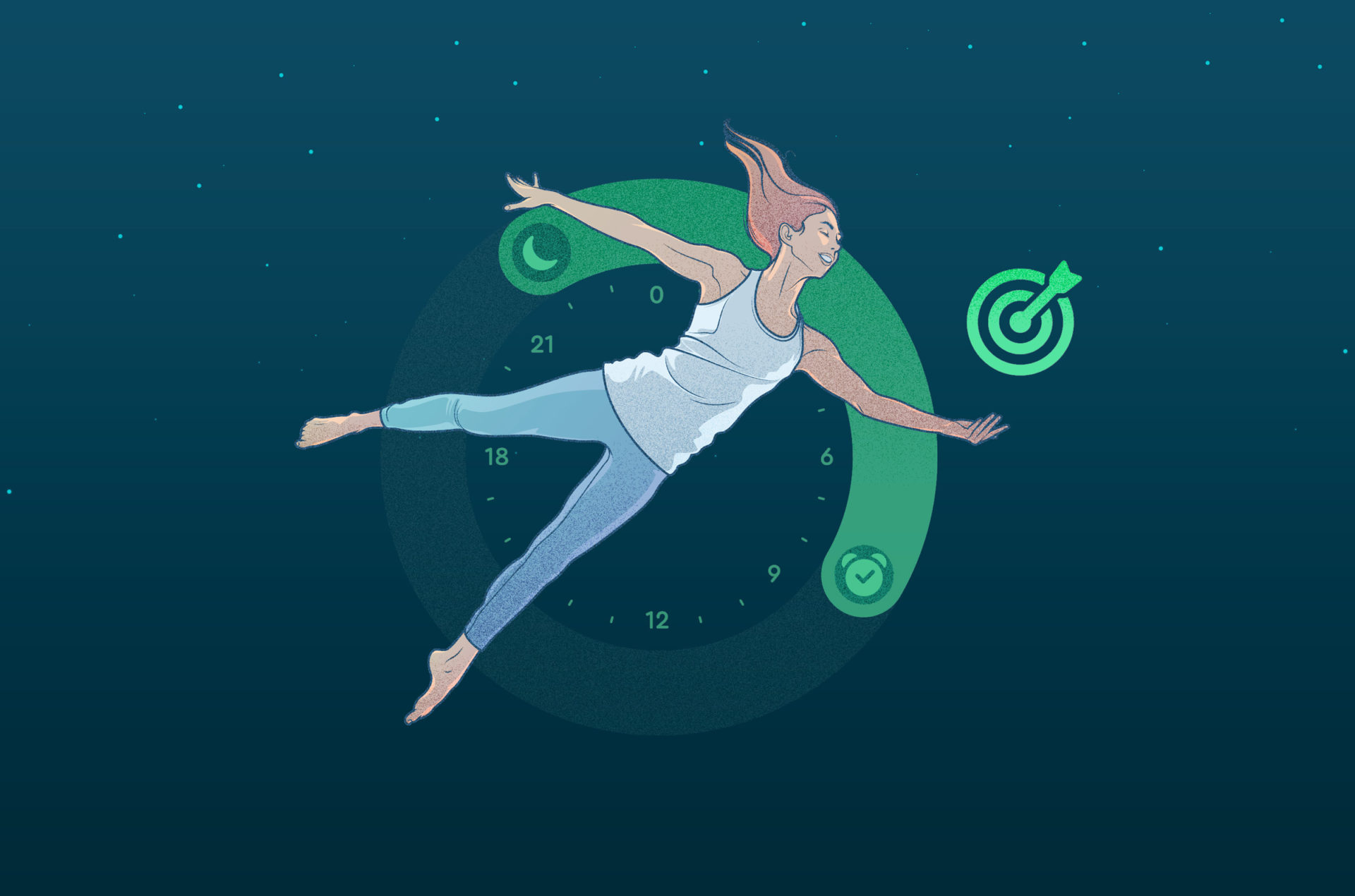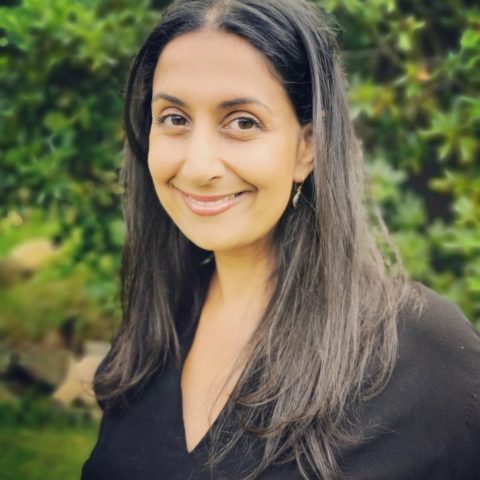Each year, many of us tend to wrap up our New Year’s Eve celebration with resolutions for the coming year. We start with great intentions, perhaps promising ourselves to add more exercise and mindfulness practice in our everyday life, to eat healthier, study more or go for that promotion. However, achieving better sleep habits rarely figures on that list, yet we would argue that sleep and in particular sleep regularity – consistent bedtime and wake-up times- is key for your new habits to stick and to help achieve your goals.
- Fix your irregular sleep schedule – Download our 60 days of Sleep Calendar
- Sleep Regularity – is there really a magic number of sleep hours?
- How to schedule in regular sleep
60 days of Sleep Calendar – Fix your irregular sleep schedule
The most popular New Year’s resolutions tend to focus on self improvement, such as healthier living, losing weight, stopping or reducing smoking and drinking. Sticking to regular sleep and wake-up times can underpin all these efforts to lead a healthier lifestyle. But new habits are hard to form.
So, how long does it take to form a habit? It takes 60 days (66 to be exact) for any new habit to stick. That’s why we’ve created the 60 Days of Sleep Calendar where we’ve gathered our favorite sleep promoting activities to help you create better sleep habits AND get the most out of our app.
The good news is that with sleep habits, a little goes a long way. Explore new habits and keep the ones that work for you. With habits that are personalized to fit your life and needs, your sleep will become more regular, and falling asleep and waking up will be easier. As a result, your sleep quality will improve.
You can use the 60 Days of Sleep Calendar by itself, but we recommend using it with our Sleep Cycle app. Take charge of your sleep habits today. We are with you all the way:
Download your 60-Day Sleep Calendar
More regular bedtime for better health
Research looking at sleep irregularity in older adults showed that greater sleep irregularity was linked to a 10-year risk of cardiovascular disease, greater obesity, hypertension and diabetes. It has also been associated with increased perceived stress and depression.
Similarly, one study on mood fluctuations in college students showed that irregular sleep-wake timing appeared to precede poor mood in young adults. Yet another study saw that improving sleep regularity in cancer patients post treatment was associated with improved quality of life, better physical functioning and fewer cancer related symptoms. There’s simply a wealth of information pointing to why better sleep habits are fundamental to our wellbeing.
It may be a worthwhile exercise to journal your sleep times and note what fluctuations there are in your sleep routine throughout the course of your week. Does your sleep schedule shift dramatically during the weekend? At Sleep Cycle we noted that:
- Our users in the U.S. and the U.K. tend to go to bed almost 30 minutes later on Fridays and Saturdays and lie-in almost an hour longer on the weekend.
- In Japan, our users also went to bed later on Fridays and Saturdays, but only for an extended 15 minutes.
- Japanese users also enjoyed a longer lie-in on Saturday and Sunday mornings, but only 40 minutes longer.
As tempting as it may be to catch up on sleep during the weekend, you could do yourself a disservice in the long term, as it perpetuates an inconsistent sleep routine. As you begin to audit your sleep habits it will hopefully let you discover more about your sleep patterns and how to optimize your sleep to pave the way for a ‘better’ you.
Sleep Regularity – is there really a magic number of sleep hours?
There isn’t necessarily a magic number for the number of hours you should sleep. Nor for the type of schedule that will work for you. For example, a sleep routine of say 11pm – 7am may work well for some, but not for others. What works for you will be as unique as your body clock or circadian rhythm is.
During weekdays, Sleep Goal’s (where users can set a sleep schedule and sleep goal for themselves) default setting and also our most popular sleep schedule timing is 10 pm to 6 am.
- Across the U.S., U.K. and Germany the second most popular schedule was 11 pm to 7 am.
- In Japan, it is from midnight to 6 am on weekdays, and from 11 pm to 7 am on the weekend.
- An interesting find is that the target hours users have set for themselves tend to be harder to achieve on Thursdays as opposed to other weekdays, perhaps caused by end of week fatigue.
To work out what’s best for you, begin assessing your energy levels in the morning and evening. Are you more productive in the morning or in the evening? In essence are you a night owl or a morning lark? Figuring this out can help you work out the best sleep habits for you.
How to schedule in regular sleep
If you find it difficult to figure out where to begin to incorporate more regular sleep to your routine, consider starting with our 60 days of sleep calendar and consider:
- Keep your wake-up time consistent – life comes in the way of some of our best intentions. You may decide to push your bedtime later to finish that looming project, however if you make yourself wake up every morning at the same time, sooner or later your body and mind will start feeling sleepy at a similar time in the evening, helping you to stick to your schedule and get to sleep sooner.
- Commit to the numbers – decide when you want to go to bed, when you wish to wake up and the number of hours sleep you want and need, to function throughout the day. Then commit to them!
- Your sleep chronotype – If you’re a morning person, set your bedtime and wake-up time early, if you’re an evening person, set it later.
- Don’t stay up in bed – If you’re not feeling sleepy, avoid staying awake in bed for too long. Instead reset, perhaps by leaving the room to read a book or practicing some meditation to wind down before sleep.
- Journal your sleep regularity – Keeping a journal on your sleep times can help you see your weak spots clearly. Is it late Friday nights, that shifts your entire weekend or a long lie-in on Sundays, that then disrupts the early part of the week. A tool such as Sleep Goal, which helps you set your sleep schedule and target hours of sleep, can help give you a clearer overview of how you’re doing and motivate you to stick to your schedule.
- Your bed is not your office – make your bed inviting for sleep, instead of dragging your phone and laptop into it. Avoid working and scrolling on your phone in bed, a habit that will most likely keep you up later than you plan.
How to fix your sleep schedule – Reset your intentions
If you need yet another reason to schedule in regular sleep, don’t look further than this report showing that higher sleep regularity was significantly related to higher morning and evening happiness, healthiness and calmness during the week.
Adding regularity can help support your intentions and resolutions, and permeates every other area of your life. Sleep regularity, therefore, is possibly the best resolution you could make to improve your sleep habits this year!
Get your 60 days of Sleep Calendar and explore new sleep habits










